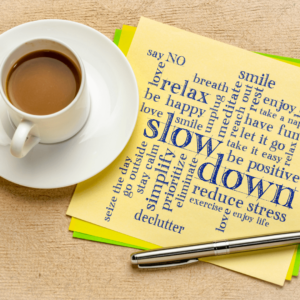Why you should keep a work journal
So how do you feel after your Xmas/New Year break? Ready to get back into it or move on to something new? I want to share with you one of my best tips about being proactive – trust me, this will make your year awesome.
The “Work Journal”
Having a “Work Journal” can change everything in your working career for the better. When I mention having a work journal to people with whom I consult, the first thought that comes to their mind is a teenage girl writing about boys, feelings of love etc. But what they don’t think of are all those famous people throughout history who kept diaries/journals of their travels, discoveries and lives.
People such as:
- Anne Frank
- Che Guevara
- Franz Kafka
- John Adams
- Captain Cook
I doubt they kept these journals because they thought that they would become best sellers but because it helped them to keep track of information & feelings, a way of communication and even a distraction. But the main thing is that from these journals we can learn from the past and move forward (or so we hope).
Why keep a journal?
- Gain clarity: When I question people about their work experiences and successes, more often than not they are unable to articulate anything substantial. Why? Because after a while our work life becomes a blur of memories that morph into one. Keeping a work journal will help you to gain clarity as to what you have accomplished.
- Your resume is never fully updated: the majority of job applicants are reactionary in nature – something negative happens at work or in their lives and they then seek a new role. Then they realise that they have to sit down and write their resumes (which is one of the most boring things in the world to do… trust me) and yet they can’t recall anything that they have done. Again, through clarity you will be able to easily update your resume and start applying for that next job or promotion.
- Smash your performance review: Keeping a journal isn’t just about updating your resume; it is a vital tool during your performance reviews. When your boss asks you how your year went, you will be able to clearly articulate what you achieved and even be able to present that document to them.
Write it down!
You don’t have to run out to the shops and buy yourself a leather bound journal in order to get started. For most people it may be simply keeping a draft email or Word document on your computer. It really doesn’t matter where you write it as long as you do it consistently and it is confidential!
What am I writing?
- Achievements: Keep a note of anything that you have done that has seen you meet or exceed the expectations of your role. It could be a new program you have developed or a large client that you have won.
- Positive feedback: There is nothing better than positive feedback, especially from clients (and previously unhappy ones), stakeholders, and colleagues. Your boss may have heard some of this feedback but not all of it. Bring these emails with you – it is your written reference to that promotion, pay rise or bonus!
- Any awards: Have you won any awards during the past year? These are the direct result of your actions above so definitely include them.
How to write it
This is your journal so whatever you decided has to work for you but when you need it to re-jig your memory or if you need to present to your managers, make sure that it is in a format that it easy to read and clearly articulates your achieves. Consider breaking down by:
- Client or stakeholder base
- Sales targets
- Projects
- Social/company culture involvement
The main thing to be writing is:
- What were you working on
- What did you do
- What was the outcome
Pick the best ones:
By the end of the year you could find yourself in a position where you have quite a few pages of notes and feedback emails. Whilst all of your notes may be worthy of mention, you may not have the time to discuss all of them so pick out your top 5 and focus on these because your boss will. It doesn’t mean that you can’t include the others in your supporting documents but need you need to highlight those points that will gain you the most positive impact.


